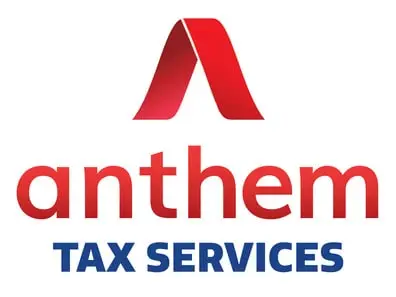
As a truck driver, you often work long hours, subject yourself to harsh working conditions, and push your body to the limit. So, we want to help you take advantage of every benefit that is available to you as a truck driver, especially when doing your taxes. Truck drivers are unique in that they have a variety of tax deductions that are available to them, and certainly more than what is available to most people with a standard 9-5 job.
In this guide, we are going to walk you through some of the tax deductions that you should be aware of and ensure that you have all the knowledge necessary to get the maximum tax benefits possible for your unique situation.
Tax Preparation is Key
If you want to get the most out of your tax filing and ensure there are no hiccups in the process, then you should place an emphasis on the preparation aspect of filing. A big part of this is making sure that you have the correct tax forms. Usually, truck drivers fall into two categories: company drivers and owner-operators. Each of these file taxes in a different way.
Company drivers will receive a W-2 form from their company that will have all the required information on it. Typically, companies give out these forms in January of each year. You will use the information on your W-2 to fill out a 1040 or 1040A form, which will ultimately determine your adjusted gross income, and therefore your total taxable income.
For owner-operators, the process is somewhat different and definitely more labor-intensive. Owner-operators will have to fill out their own 1099, which is a tax form that is used for those that are self-employed or reporting miscellaneous income. Since you will be filling out this entire form by yourself in this scenario, it is important that you keep very close records of your income, expenses, and any other expenditures.
Regardless of whether you are a company driver or owner-operator, it is important that you keep careful records throughout the year of all of your expenses. The IRS is forgiving to a certain degree, but you certainly don’t want to end up being audited without having any proof or records to back up your claimed expenses. Make sure to save receipts, invoices, and any other record that you can procure that would prove your expenses.
How Do Tax Deductions for Truck Drivers Work?
Though you might not see tax optimization as a big deal, the potential savings are in the thousands of dollars. It is critically important that you take advantage of whatever tax benefits you can gain when you are a truck driver. Tax deductions for truck drivers mean that drivers that incur expenses while performing their job will be able to deduct their expenses from their total income for that year. These expenses are considered to be a cost that reduces the income of the driver. Deducting these amounts from your taxable income can mean thousands of dollars in savings a year.
About Tax Deductions for Truck Drivers
Though it’s clear that tax deductions can provide a huge benefit to truck drivers, individuals will need to know about what expenses can and cannot be deducted in order to accurately and effectively file their taxes.
This walkthrough will provide you with insight into what expenses, which are often incurred by truck drivers, are eligible to be deducted from taxable income each year and save you thousands of dollars in the process.
Possible Tax Deductions for a Truck Driver
Here are some of the tax deductions that are available to truck drivers.
- Cell Phone Plans: Truck drivers are well aware of how much they rely on their cell phones and other devices. You can deduct the cost of this essential equipment on a monthly basis to make sure you are offsetting the costs of communication while on the job.
- Medical Exams / Check-Ups: If your employer requires a health exam or frequent check-ups, you can deduct any expenses that are incurred as a result.
- Fees for Licensing: If you have to pay out of your own pocket to maintain your CDL license or other registrations that are required to do the job, you can deduct these costs from your taxable income.
- Meals: Truck drivers often find themselves eating three meals a day on the road. The IRS allows for a $63 per diem each day for costs related to food and meals.
- Truck Maintenance / Repairs: Truck drivers are all too familiar with the costs associated with keeping their equipment in working order. These costs can be deducted from the income of a truck driver when paid by the driver.
- Necessary Equipment: Who knows what you will need on the road? It could be a variety of things ranging from tools to hand warmers. Whatever it may be, the chances are that you can deduct it from your income when paid out-of-pocket.
- Gas & Travel Costs: Travelling can be costly. When you are responsible for these costs by yourself, it can become a burden very quickly. Be sure to record these costs so that you only report the income that you actually earned for taxation.
Limitations for Tax Deductions
There are certainly many expenses that you are able to deduct if you meet the right criteria, but most deductions aren’t available to everyone. There are limitations that you should be aware of. Being aware of these limitations will save you time, energy, and possible trouble with the IRS. One of the most notable limitations is that drivers are not able to deduct expenses that are already reimbursed by their employer. This is mostly applicable to company drivers. Additionally, drivers are not able to deduct time spent doing maintenance and other work on their vehicles.
Recap
Truck drivers are able to deduct a very large amount of expenses that are incurred from travel. However, it is necessary that they arm themselves with the required knowledge and resources that are needed to take advantage of these benefits. It is our hope that with this guide, you’ll have a good foundation upon which to build a tax strategy that will help you keep more of your hard-earned money. If you’re a truck driver seeking tax debt relief or in need of tax preparation, contact us today at (888) 548-0478 or by email.
As a truck driver, you often work long hours, subject yourself to harsh working conditions, and push your body to the limit. So, we want to help you take advantage of every benefit that is available to you as a truck driver, especially when doing your taxes. Truck drivers are unique in that they have a variety of tax deductions that are available to them, and certainly more than what is available to most people with a standard 9-5 job.
In this guide, we are going to walk you through some of the tax deductions that you should be aware of and ensure that you have all the knowledge necessary to get the maximum tax benefits possible for your unique situation.
Tax Preparation is Key
If you want to get the most out of your tax filing and ensure there are no hiccups in the process, then you should place an emphasis on the preparation aspect of filing. A big part of this is making sure that you have the correct tax forms. Usually, truck drivers fall into two categories: company drivers and owner-operators. Each of these file taxes in a different way.
Company drivers will receive a W-2 form from their company that will have all the required information on it. Typically, companies give out these forms in January of each year. You will use the information on your W-2 to fill out a 1040 or 1040A form, which will ultimately determine your adjusted gross income, and therefore your total taxable income.
For owner-operators, the process is somewhat different and definitely more labor-intensive. Owner-operators will have to fill out their own 1099, which is a tax form that is used for those that are self-employed or reporting miscellaneous income. Since you will be filling out this entire form by yourself in this scenario, it is important that you keep very close records of your income, expenses, and any other expenditures.
Regardless of whether you are a company driver or owner-operator, it is important that you keep careful records throughout the year of all of your expenses. The IRS is forgiving to a certain degree, but you certainly don’t want to end up being audited without having any proof or records to back up your claimed expenses. Make sure to save receipts, invoices, and any other record that you can procure that would prove your expenses.
How Do Tax Deductions for Truck Drivers Work?
Though you might not see tax optimization as a big deal, the potential savings are in the thousands of dollars. It is critically important that you take advantage of whatever tax benefits you can gain when you are a truck driver. Tax deductions for truck drivers mean that drivers that incur expenses while performing their job will be able to deduct their expenses from their total income for that year. These expenses are considered to be a cost that reduces the income of the driver. Deducting these amounts from your taxable income can mean thousands of dollars in savings a year.
About Tax Deductions for Truck Drivers
Though it’s clear that tax deductions can provide a huge benefit to truck drivers, individuals will need to know about what expenses can and cannot be deducted in order to accurately and effectively file their taxes.
This walkthrough will provide you with insight into what expenses, which are often incurred by truck drivers, are eligible to be deducted from taxable income each year and save you thousands of dollars in the process.
Possible Tax Deductions for a Truck Driver
Here are some of the tax deductions that are available to truck drivers.
- Cell Phone Plans: Truck drivers are well aware of how much they rely on their cell phones and other devices. You can deduct the cost of this essential equipment on a monthly basis to make sure you are offsetting the costs of communication while on the job.
- Medical Exams / Check-Ups: If your employer requires a health exam or frequent check-ups, you can deduct any expenses that are incurred as a result.
- Fees for Licensing: If you have to pay out of your own pocket to maintain your CDL license or other registrations that are required to do the job, you can deduct these costs from your taxable income.
- Meals: Truck drivers often find themselves eating three meals a day on the road. The IRS allows for a $63 per diem each day for costs related to food and meals.
- Truck Maintenance / Repairs: Truck drivers are all too familiar with the costs associated with keeping their equipment in working order. These costs can be deducted from the income of a truck driver when paid by the driver.
- Necessary Equipment: Who knows what you will need on the road? It could be a variety of things ranging from tools to hand warmers. Whatever it may be, the chances are that you can deduct it from your income when paid out-of-pocket.
- Gas & Travel Costs: Travelling can be costly. When you are responsible for these costs by yourself, it can become a burden very quickly. Be sure to record these costs so that you only report the income that you actually earned for taxation.
Limitations for Tax Deductions
There are certainly many expenses that you are able to deduct if you meet the right criteria, but most deductions aren’t available to everyone. There are limitations that you should be aware of. Being aware of these limitations will save you time, energy, and possible trouble with the IRS. One of the most notable limitations is that drivers are not able to deduct expenses that are already reimbursed by their employer. This is mostly applicable to company drivers. Additionally, drivers are not able to deduct time spent doing maintenance and other work on their vehicles.
Recap
Truck drivers are able to deduct a very large amount of expenses that are incurred from travel. However, it is necessary that they arm themselves with the required knowledge and resources that are needed to take advantage of these benefits. It is our hope that with this guide, you’ll have a good foundation upon which to build a tax strategy that will help you keep more of your hard-earned money. If you’re a truck driver seeking tax debt relief or in need of tax preparation, contact us today at (888) 548-0478 or by email.


